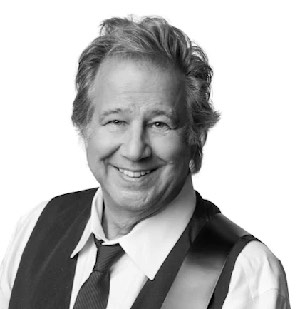
Horror Show: A Tribute to Greg Kihn
Greg Kihn (July 10, 1949 – August 13, 2024) was known primarily as a rock musician and radio DJ. He also wrote horror fiction. His debut novel in the genre was Horror Show (1996), which received a Bram Stoker award nomination in the Best First Novel category. Kihn’s recent death prompted me to re-read the book. Its narrative is temporally bookended in the year of the novel’s Tor Books publication. However, the midsection bulk of the plot is a lengthy set piece flashback to 1957. In its modern-day sections, a newshound for a horror movies publication scores an interview with a notoriously reclusive director. The apex of the director’s career was a cheap yet ultimately arty 1957 flick, which was rumored to have employed actual corpses in the most shocking scenes. As the intrepid newsman records the director’s memories, the reader unspools the real reel deal.

Director Landis Woodley is a pragmatic person. He understands that his shoestring budget movies have limitations, and that 1950s Hollywood is now competing with the novelty of television. The milieu he works in does give him lots of latitude: “Horror movies didn’t have to make sense—they just had to scare you.” That mindset can also be applied to Kihn’s novel. Consider some examples of its loopy dramatis personae: A demon snake that possesses a famous Satanist, a borderline insane special effects makeup artist who brings a corpse to a wrap party, a TV horror hostess who will go to dangerous extremes to advance her career, a transvestite screenwriter who ridicules 1950s culture, and a drug-addicted genre film star who is at his achievement nadir. That character was overtly modeled on Bela Lugosi, right down to the accent. The Lugosi influence is handled with poignance and empathy by Kihn: “Jonathon Luboff was beyond caring. The demons inside him were all too real, the pain in his soul far deeper than mere acting. Jonathon shrugged it all off. He was emoting with his essence, portraying pure pain that transcended the role he played.”
Luboff’s attitude encapsulates a thread that runs through Horror Show: You work with what you have. No matter how taxing or grotesque or revolting. In filming Cadaver, his magnum opus, director Woodley succumbs to this distorted viewpoint. It’s not as poetic as “art for art’s sake.” It’s more practical and serviceable. Yet there’s an unanticipated artistry to it all: “The lights illuminated the dead man’s face, sharply defining every decay, every failing of the human flesh. White as a fish belly, and just as soft, with subtle discoloration here and there, his skin seemed to come alive under the harsh scrutiny of the klieg lights. Their unforgiving carbon arcs showed nuances that only the camera wanted to see.”
There are many sequences of unrepentant gallows’ humor in the novel. Goofy and gross scenes that are akin in tone to the 1985 film Re-Animator or Sam Raimi’s Evil Dead 2 (1987.) While these possible 1980s influences are noteworthy, Kihn’s focus was evoking the 1950s and that decade’s penchant for schlock movies. And he did an excellent job. His depiction of Los Angeles in that period, including Raymond Chandler-like takes on neighborhoods and social hierarchies, is quite good and has a film noir vibe.
The accomplishments of Greg Kihn in the music industry will likely be the headline of his legacy. He first broke into the Billboard Hot 100 in 1981 with “The Breakup Song” (They Don’t Write ‘Em)” and his biggest hit “Jeopardy” reached number two on the charts in 1983. The accompanying video was extremely popular on MTV, and featured Kihn portraying the marriage-phobic-soon-to-be-groom. Weird Al Yankovic parodied it with his “I Lost on Jeopardy” video in which Kihn had a cameo.
For horror aficionados, Kihn will also be fondly remembered for his writings in the genre. Horror Show maintains a nice balance of satire and scares. It is immensely entertaining, displaying a quirky reverential affection for monster movies of a bygone era. With Kihn’s passing, we bid adieu to a music man who was also a horror guy.

